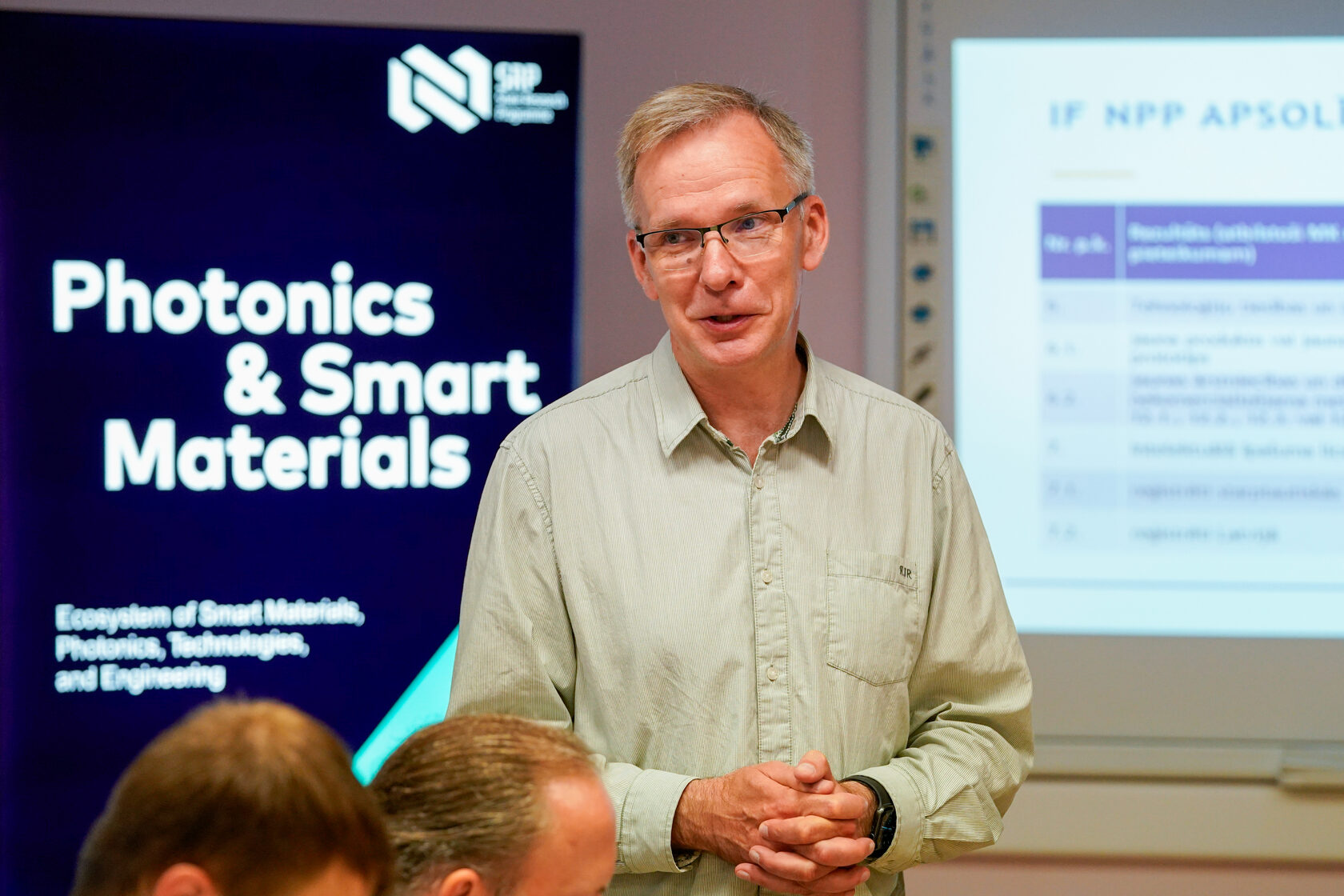
GA Nr. VPP-EM-FOTONIKA-2022/1-0001
Project goal and tasks
Latvia’s outstanding research institutes and universities are building a co-creative research ecosystem to commercialise scientific results in photonics, smart materials, microfluidics, robotics, IoT and related technologies, thereby strengthening innovation and manufacturing capacity for high value-added products.
The project “Smart Materials, Photonics, Technologies, and Engineering Ecosystem” (No. VPP-EM-Photonics-2022/1-0001), the Institute of Solid State Physics of the University of Latvia, Riga Technical University, the University of Latvia, the Institute of Electronics and Computer Science, the Latvian Biomedical Research and Study Centre, the Latvian State Institute of Wood Chemistry and the Rezekne Academy of Technologies are joining together in a cluster, to use the partners’ competences and scientific contributions to carry out interdisciplinary research that could become the basis for the development of internationally competitive technologies, products and services, as well as new economic sectors in Latvia.
The partners’ cooperation will develop fibre-based technologies for a wide range of applications in pollution, disease and structural stability monitoring, combining competences in physics, microtechnology, biology and medicine, and organ model technologies for drug substance testing. Scientists will also develop commercialisable materials to reduce humanity’s impact on the environment by developing solutions for the production of biopolymers, cryogenic materials, asphalt, hydrogen and CO2 recycling, as well as the conversion of body movement and heat into electricity. In robotics, we plan to develop innovations for industrial solutions and improve the efficiency and security of the Internet of Things.
Tasks to be performed by EDI
WP4 “ROBOTICS/IoT” (RoLISe), for which is responsible EDI, is dedicated to three groups of technologies have been identified for their high added value capacity for industry needs: robotics, internet of things (IoT) and smart sensor systems, that are aimed at solving industry driven problems. In robotics there are two research subfields that require new solutions for more efficient robot use – making systems smarter and more perceptive of their environments and making systems control both easier and more efficient. In the case of IoT we also target two distinct problems preventing industry from benefiting more from this technology – there is no seamless integration and usage toolset for large scale smart systems on several different (IoT, Edge, Cloud) levels and existing protocols are insufficient at providing truly large-scale low-power wireless networks needed for these applications. Sensor systems, that are human friendly, while also complex enough to provide effective multi step feedback and control of critical processes while being secure, energy efficient and low latency are still not available, and several technological advances are needed to provide such services to the industry.
The project is implemented under the national research programme “Innovation Fund – Sectoral Research Programme” set up by the Ministry of the Economy. Its aim is to promote scientific research, cooperation between research institutes, universities and industry, to facilitate and support technology transfer, and the development of innovative and commercialised products and technologies in line with industry needs.
The results achieved
IoT-Edge-Cloud-Continnum data management framework
Real-Time Monitoring and Feedback Technology for Wearables (InterWear)
Interconnecting Time-Synchronized Low-Power IoT Networks Through 5G Backbone
Participating scientists
Andris Lapiņš
Former EDI research assistant
M.sc. Beāte Banga
Former EDI research assistant





